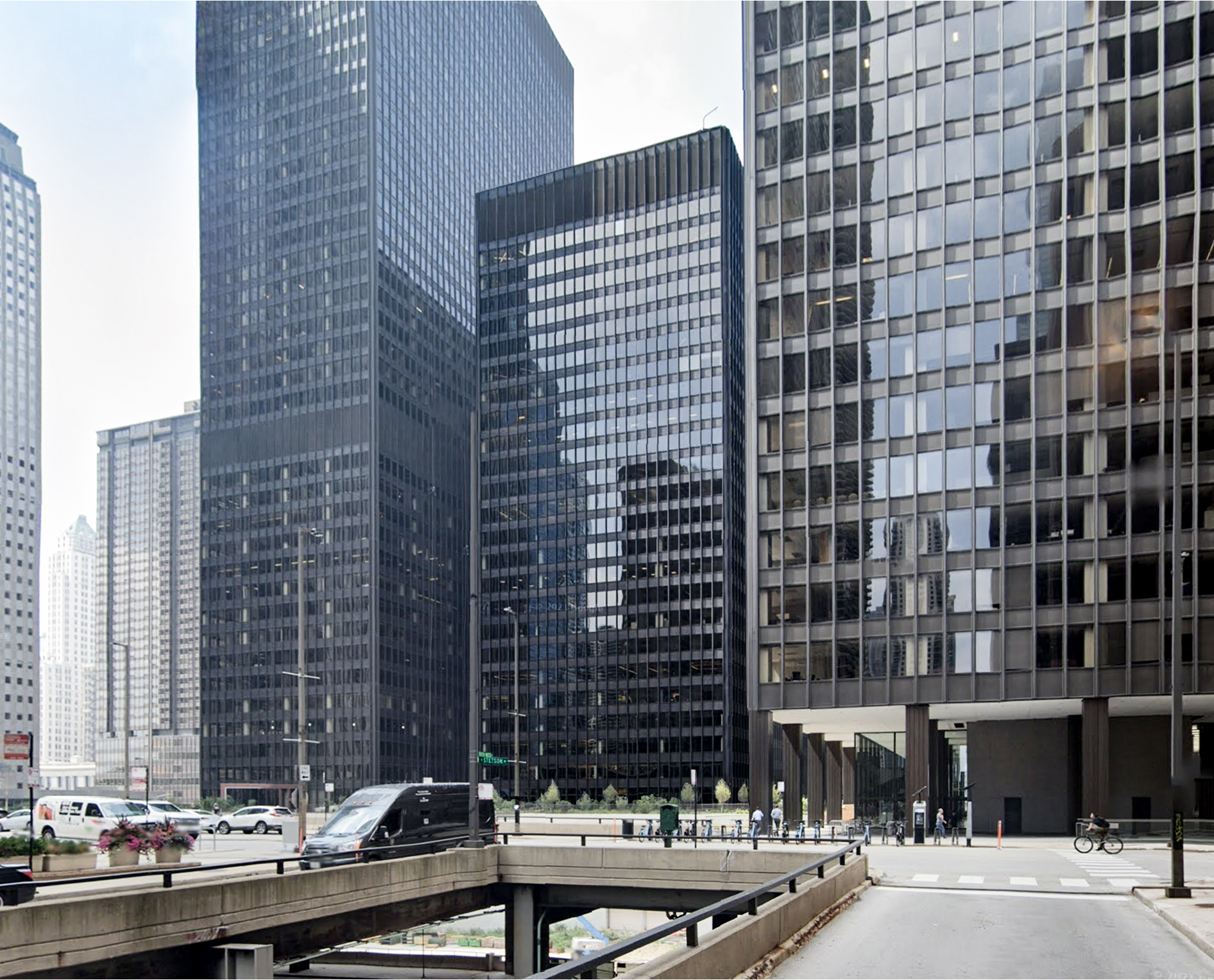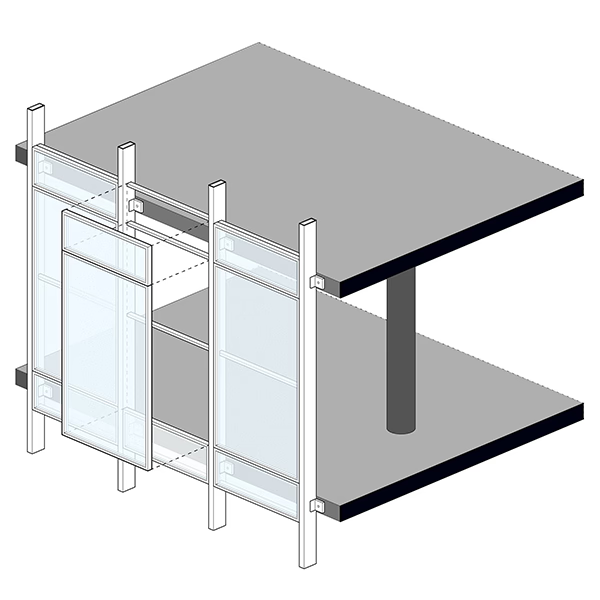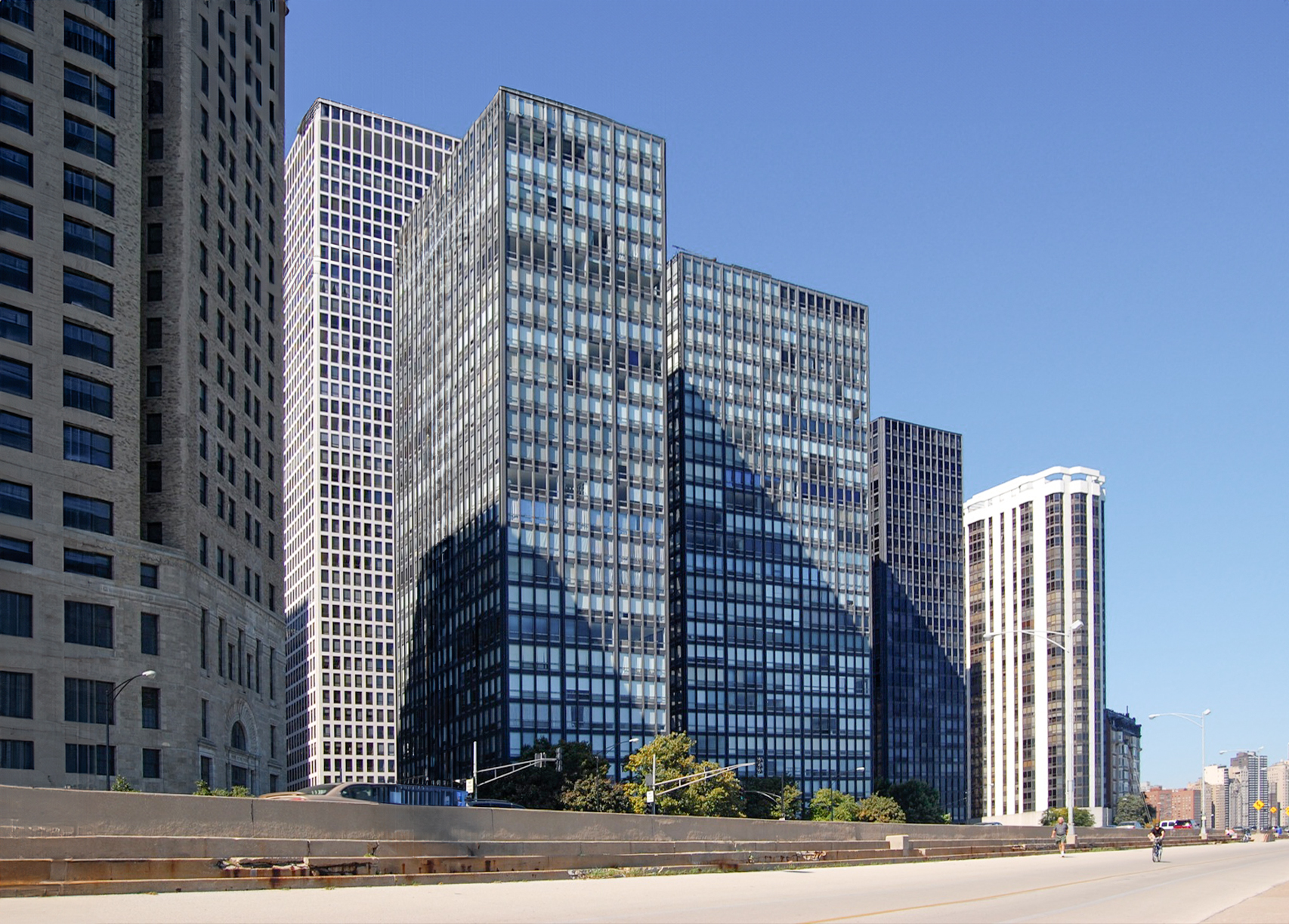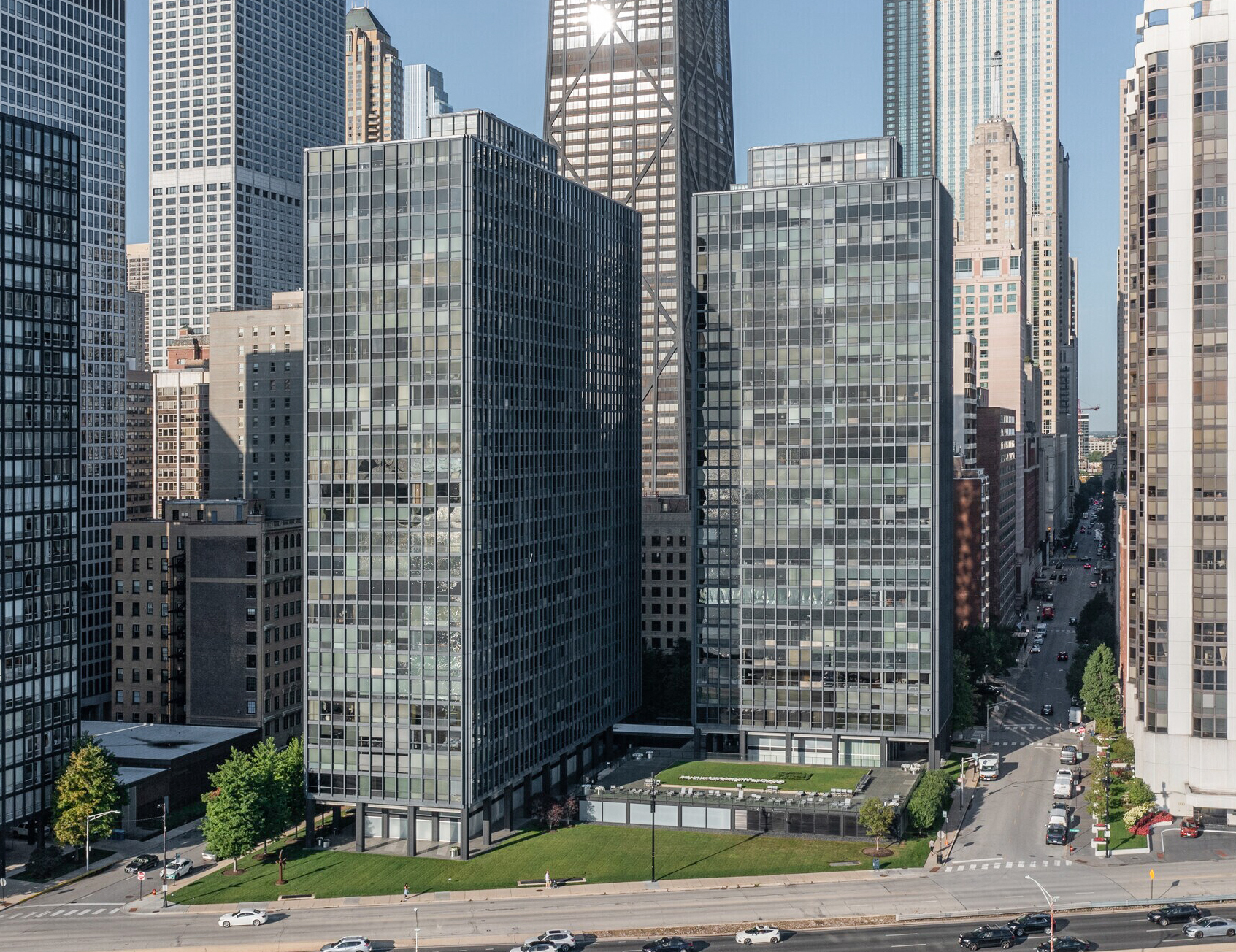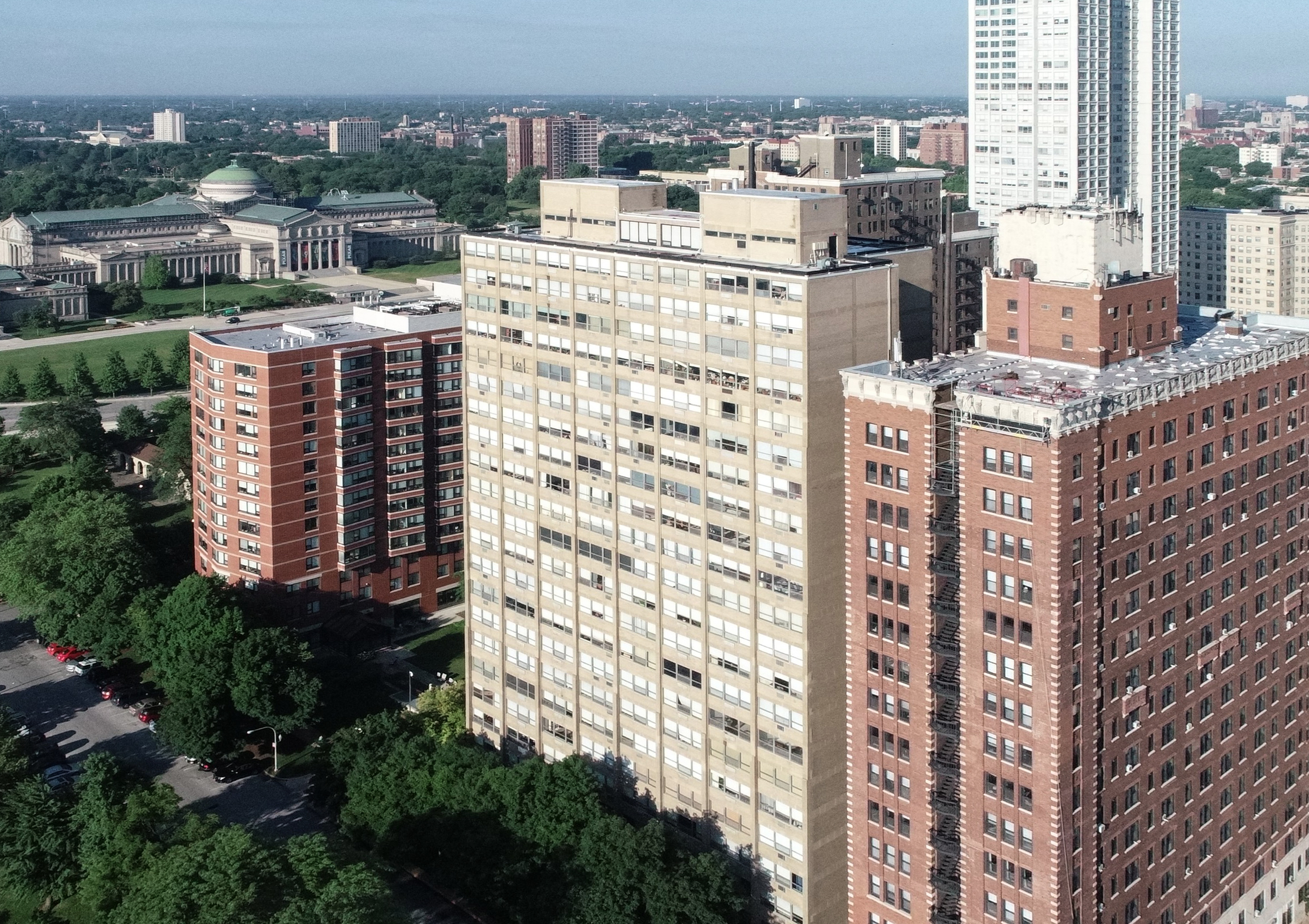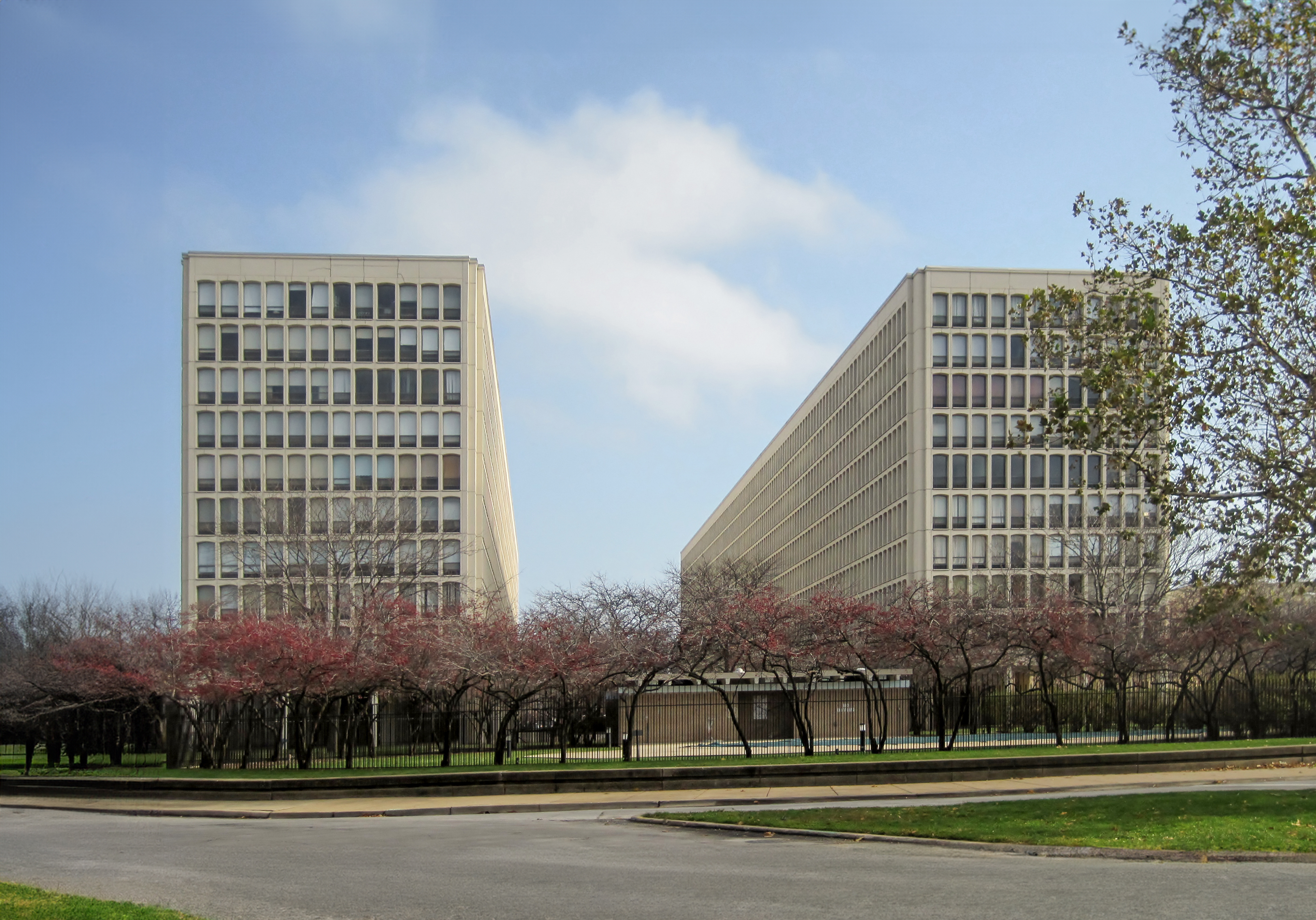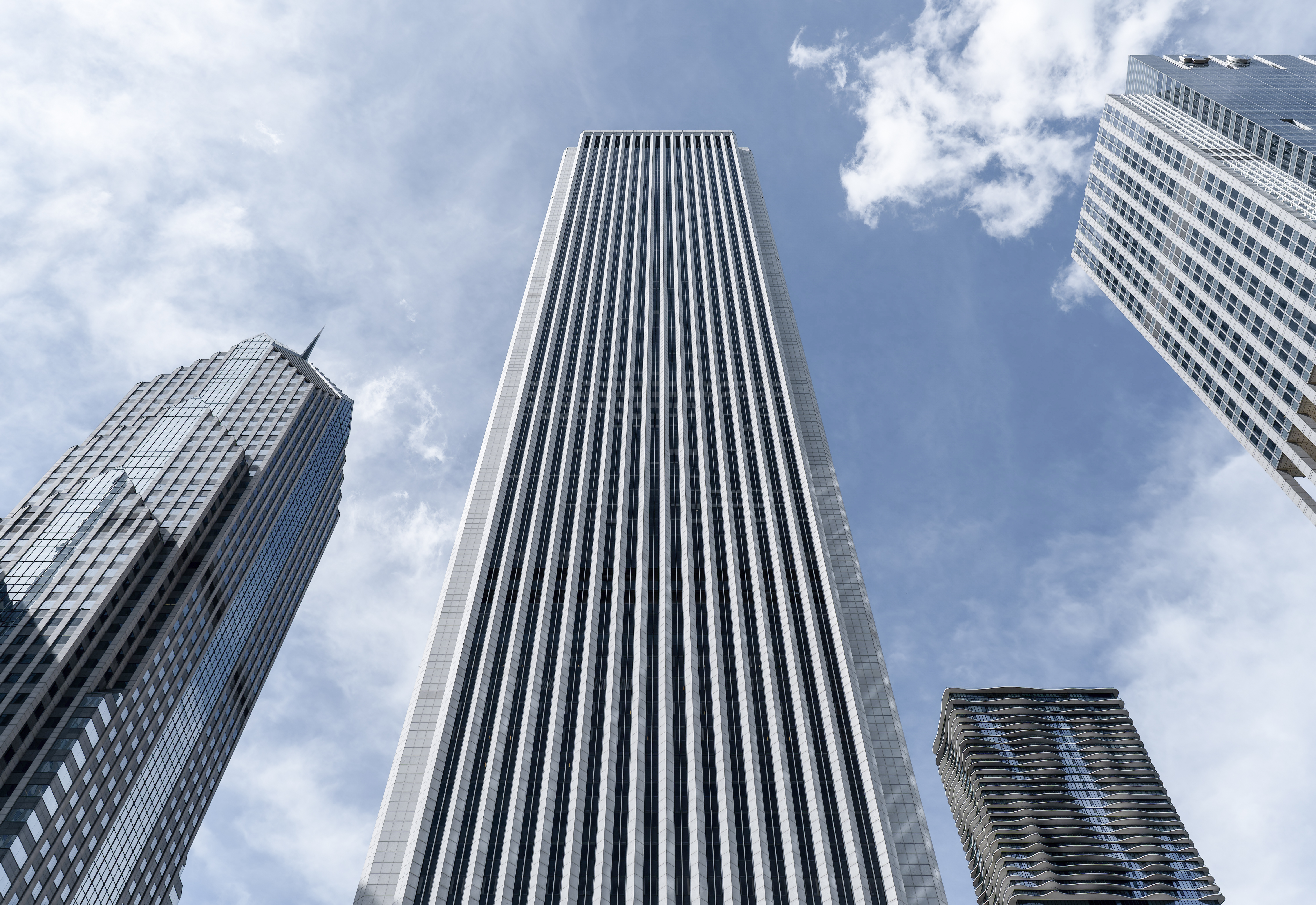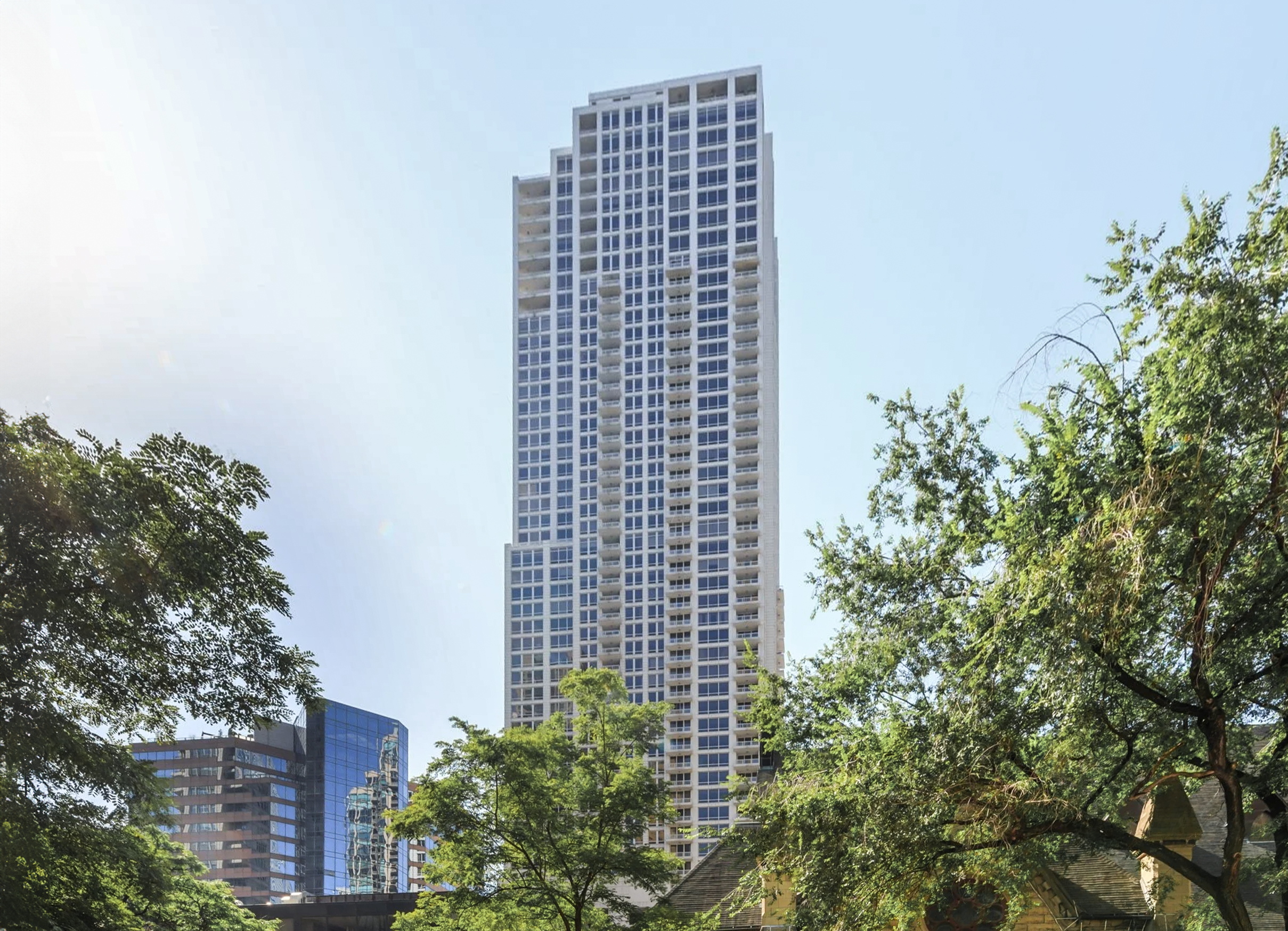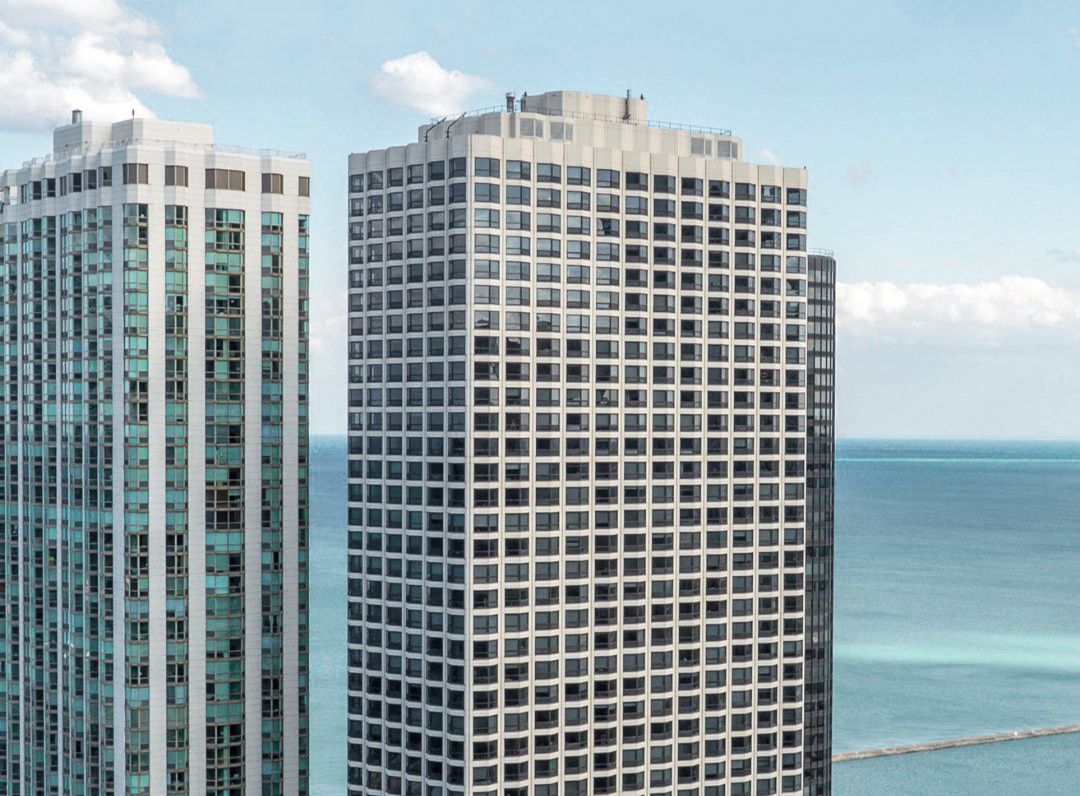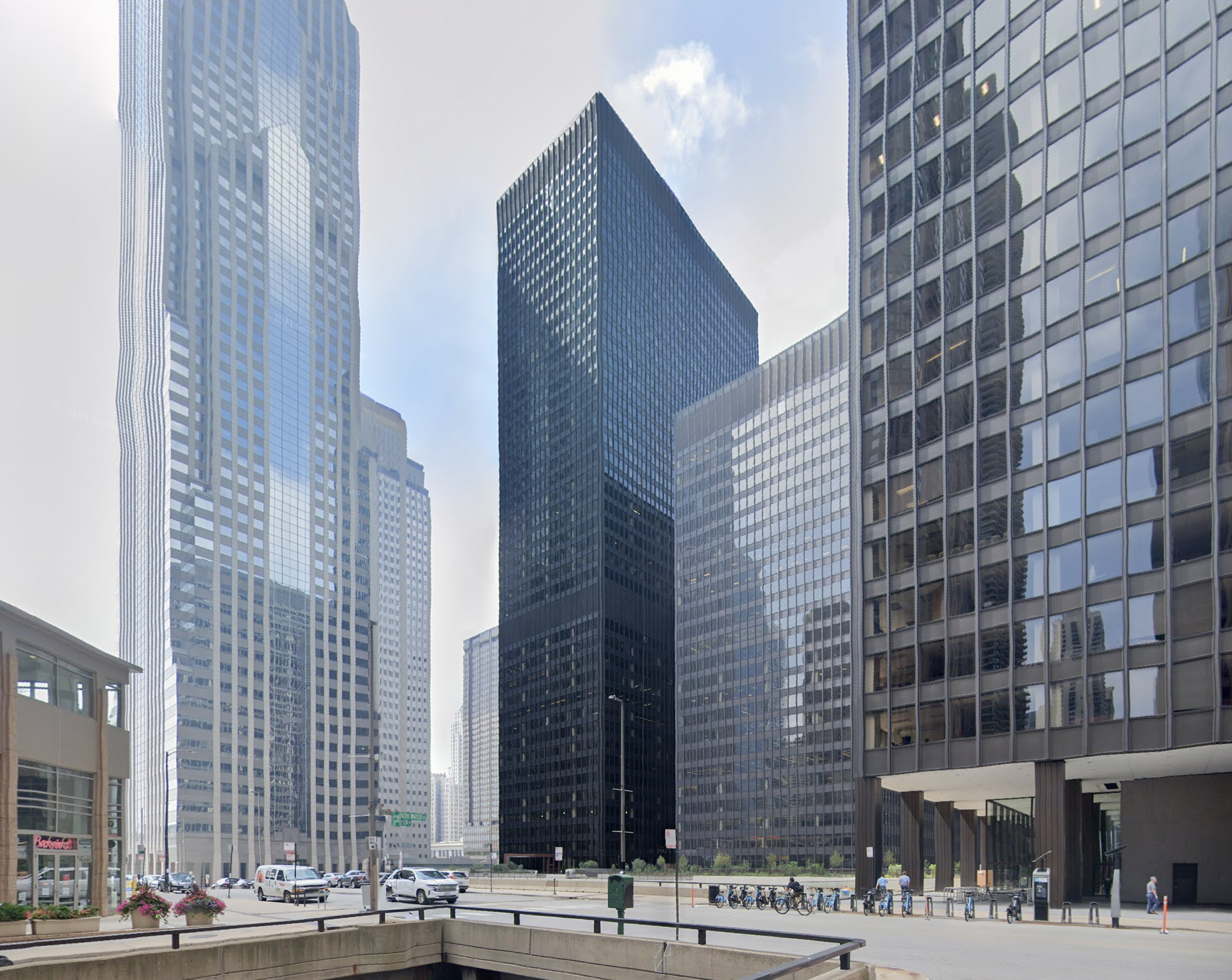The Michigan Plaza North is an International Style skyscraper designed by Fujikawa Johnson & Associates, and built between 1980 and 1981 in Chicago, IL.
Michigan Plaza North is not the only name you might know this building by though. The building is, or has also been known as Boulevard Towers North.
Its precise street address is 225 North Michigan Avenue, Chicago, IL. You can also find it on the map here.
The 25-story Michigan Plaza North building, along with the 44-story Michigan Plaza South, is one of two adjacent interconnected high-rise office buildings with associated retail space and underground parking, constituting the complex known as Michigan Plaza.
The building has been restored 2 times over the years to ensure its conservation and adaptation to the pass of time. The main restoration works happened in 2000 and 2002.
